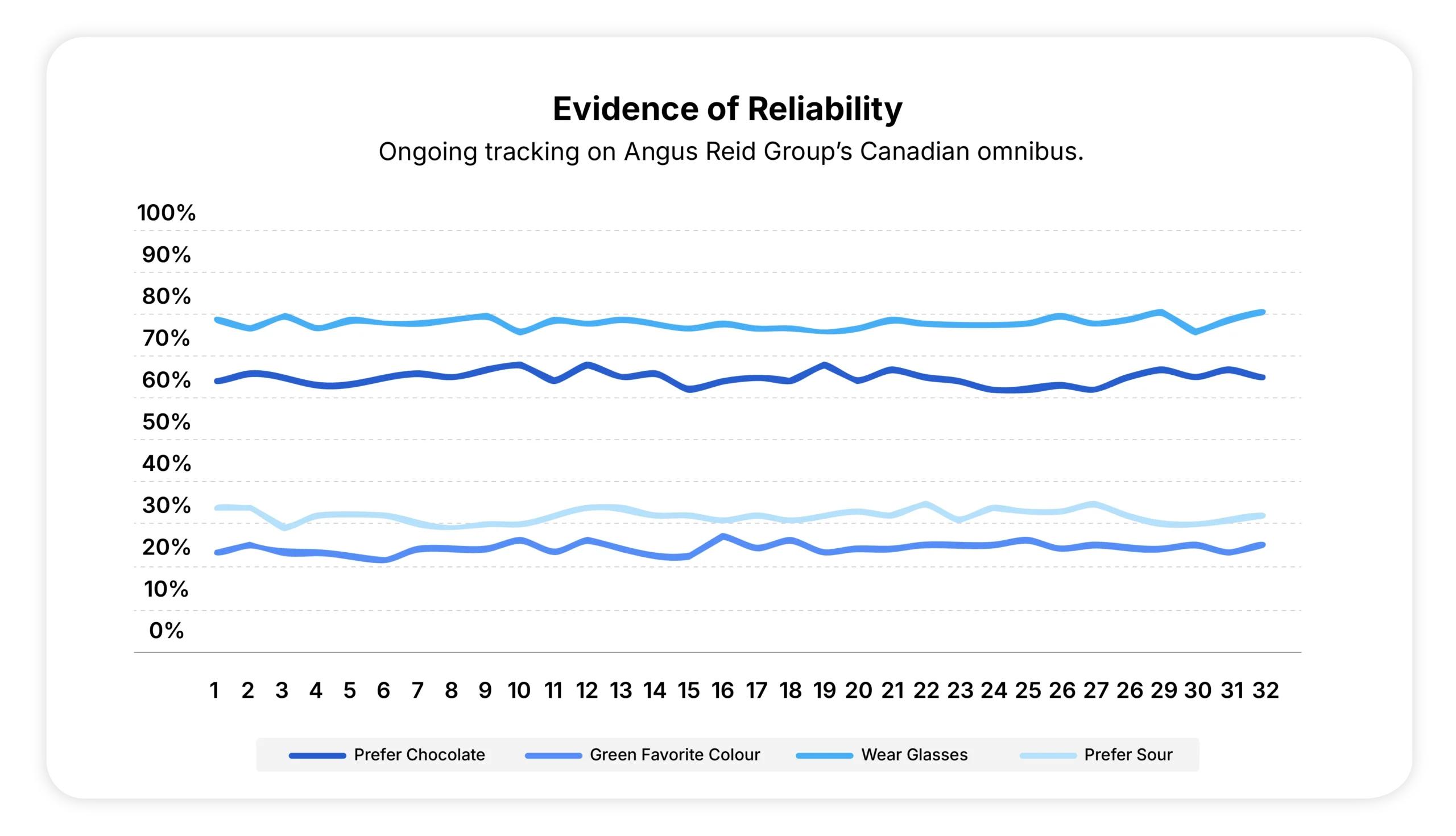It’s there, sturdy and dependable, but also unremarkable. When a bridge doesn’t collapse under us, do we stop to marvel at its engineering? When the skyscraper we work in doesn’t suddenly crumble into a heap of concrete and steel, do we dash off an enthusiastic thank-you note to the architect? No. We trust the science that built it, take it for granted, and move on.
This same blind trust often seeps into our data practices—but it really shouldn’t. Relying on inexpensive sample from unknown sources too often leaves us with data that’s riddled with errors and inconsistencies—the kind that undermines trust and tarnishes the reputation of trustworthy market research.
Take the so-called “river” samples—data flowing in from social media, ads, fraudsters, and other unpredictable sources. Unlike a well-designed bridge, this sample can fluctuate wildly and be alarmingly inconsistent.
Even large panels, which appear to offer a sturdy foundation, are often built on shaky ground, pulling in data from a myriad of potentially biasing sources. Consider loyalty card sources. They might seem like reliable bridges to consumer insight, but their design can skew results dramatically. Those who religiously swipe their loyalty cards at checkout often behave quite differently from the general population. It’s not that they’re unreliable—it’s that they’re not representative. But these unrepresentative samples can vary in composition with each new sample draw, introducing unreliability.
Reliability, when we pause to examine it, is not boring—it’s a marvel of thoughtful construction and careful monitoring.
To assess the validity and reliability of our market communities, we track the same measures over time, watching to see if our results confirm trustworthy market data. We’ve crafted a set of recurring questions, intentionally designed to measure aspects of life that typically don’t change much.
We selected these topics specifically because they represent steady preferences and behaviors. We ask about choices like sweet versus sour, chocolate versus vanilla, favorite colors, and whether people wear glasses or contact lenses. Our tracking results? Straight, predictable lines—consistently, almost boringly, reliable market data.

When you’re relying on research to guide decisions, you need results that are as trustworthy as the bridges we cross and the buildings we inhabit—solid, reliable, and built to last. That’s why our market communities are designed with care and precision, so, that we can ensure trustworthy market data. We recruit participants from a wide variety of sources, ensuring that no single group or perspective skews the data. Bias isn’t something we take lightly; it’s something we actively guard against.
But recruitment is just the beginning. True reliability comes from the relationships we build with the people who make up these communities. They’re not just “sample” to us—they’re individuals whose time and opinions we respect deeply. We create vibrant, engaged communities by valuing their input and showing them the tangible impact of their feedback. It’s this mutual respect that transforms a pool of respondents into a source of insights we can trust—and that our clients can build on with confidence.
Recommended
5 Critical Challenges Facing Brands and Organizations Today—and How Public Affairs Provides the Solution
The pace of change in the world today demands a new approach to public affairs. Traditional methods of shaping policy and managing brand reputation are no longer sufficient in an environment defined by rapid geopolitical shifts, evolving societal expectations, and the...
Public Affairs Research: Uncovering the Attitudes That Shape Tomorrow
Introduction: Why Public Affairs Research Matters Today In a world marked by rapid societal shifts and evolving challenges, understanding public sentiment has never been more critical. Public affairs research provides the foundation for informed decision-making,...
Why Brands Are Choosing Omnibus Surveys for Quick and Reliable Insights
Why Brands Are Choosing Angus Reid’s Omnibus Surveys for Quick and Reliable Insights In today’s fast-paced market, brands need actionable data to stay competitive. Traditional research methods can be time-consuming and costly, but Omnibus surveys offer a smart,...
Audio Blog: 2024 Canadian Employer Pension Survey, Burnout key issue
Audio Blog: Employee Burnout key Insights from the 2024 Canadian Employer Pension Survey Employee burnout is a Key insight from the 2024 HOOPP survey. Discover all the other key findings form the 2024 Canadian Employer Pension Survey in this audio blog. The survey of...










